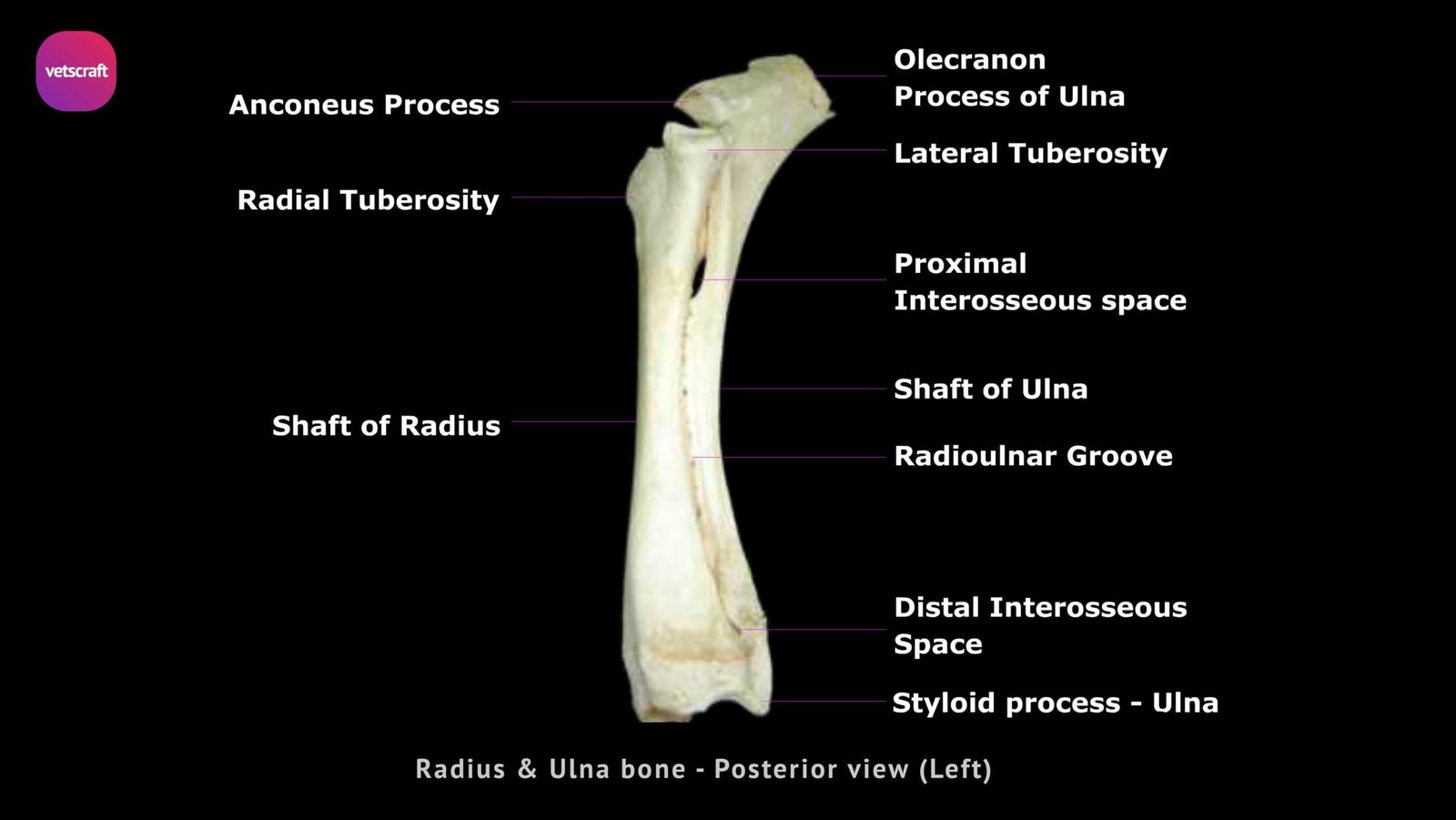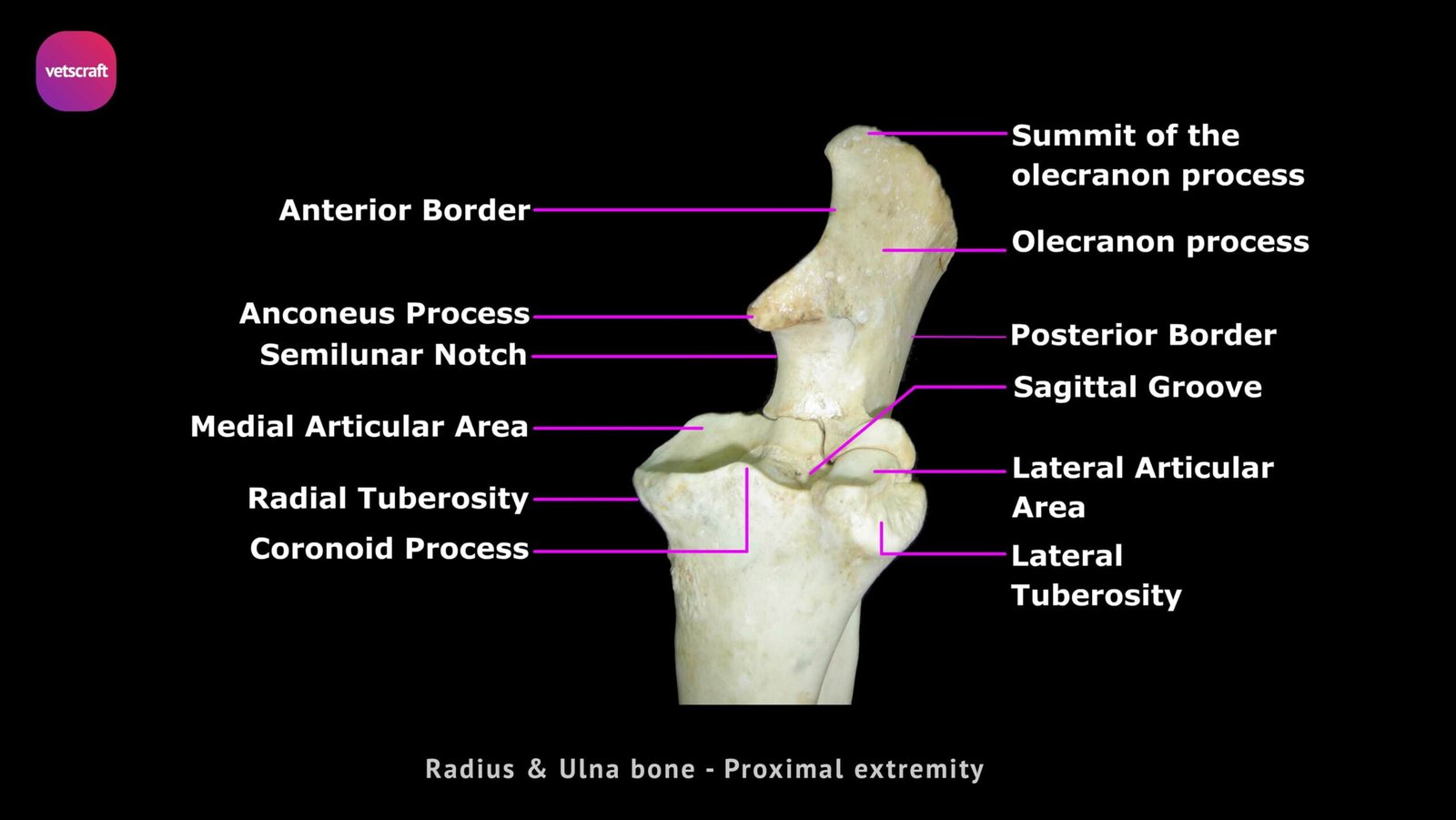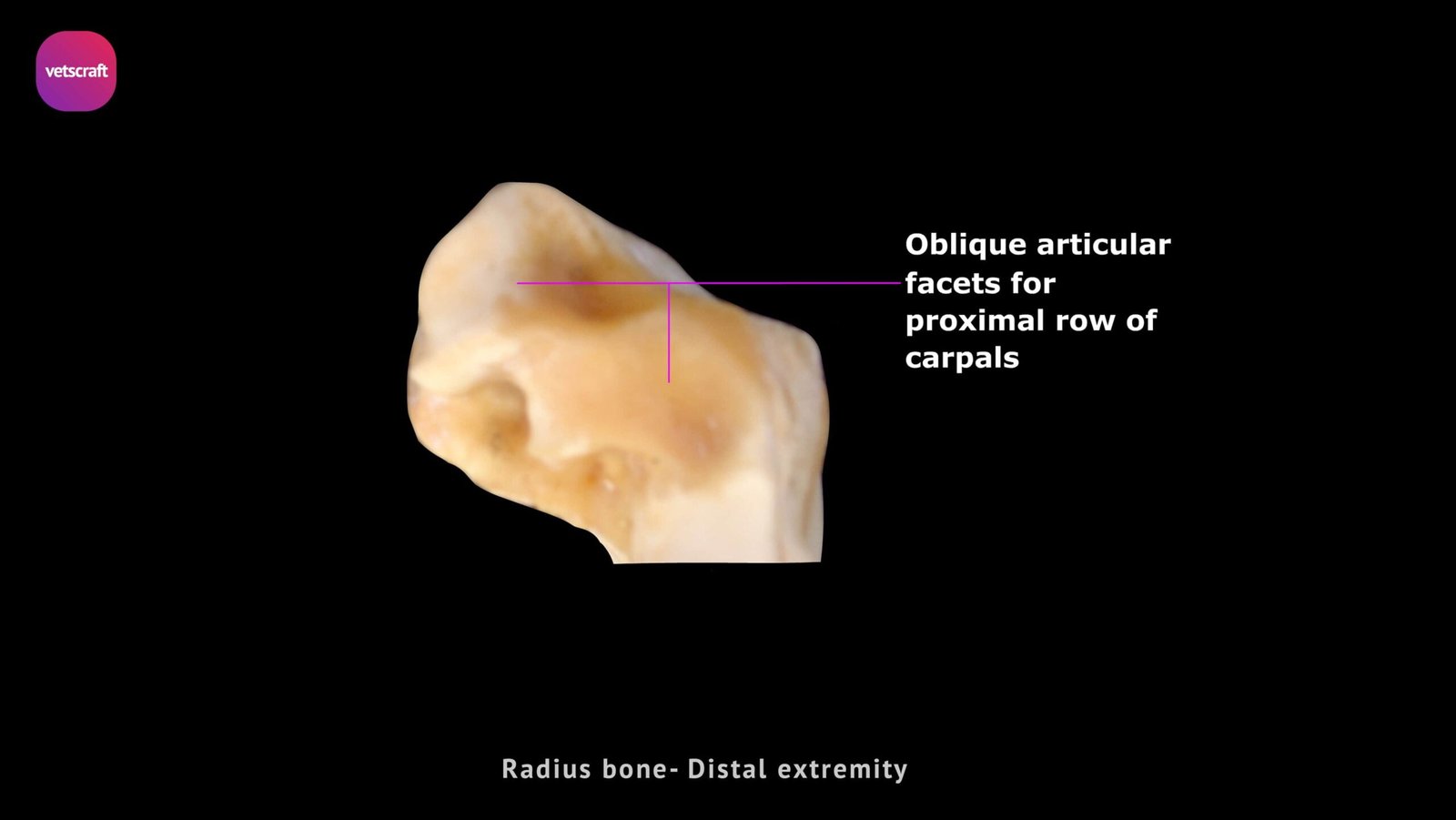TABLE OF CONTENTS
Radius Bone of Animals: Comparative Anatomy in Domestic Species
The radius bone of animals is the larger and shorter of the two bones that make up the forearm, the other being the ulna. It is a long bone positioned obliquely downward, extending from the elbow joint above to the carpal (wrist) joint below.
Radius Bone of Ox
The radius bone of the ox is the larger and shorter of the two bones of the forearm. It is a long bone placed obliquely downward between the elbow joint above and the carpal joint below. It consists of a shaft and two extremities.



Shaft
Shaft is flattened from before backwards. It has two surfaces and two borders. The dorsal face is convex in its length, smooth, and covered by the extensors of the carpus and digits.
The volar face is concave in its length. It presents, along its lateral border, a narrow rough area where it is attached to the ulna by the interosseous ligament. This rough area is interrupted above and below by two smooth areas which form the proximal and distal radio-ulnar arches or interosseous spaces. These two arches are connected laterally by the radio-ulnar groove, which is for the passage of the interosseous vessels.
The medial border is, for the most part, subcutaneous and presents proximally a rough area for the brachialis and the medial ligament of the elbow.
The lateral border is rounded in its proximal third, wide and flat below, and is limited by the radio-ulnar groove. This border gives attachment to the lateral digital extensor and the extensor carpi obliquus.
Proximal Extremity

The proximal extremity of the radius of ox presents an articular area, which is divided by a sagittal groove into two divisions, the medial being the larger. It articulates with the distal extremity of the humerus and is surrounded by a rim, which carries the coronoid process about the middle of the anterior surface. The coronoid process is received into the coronoid fossa of the humerus during the extreme flexion of the elbow.
Posteriorly, just below the articular surface, are two facets for articulation with the like facets of the ulna, and between these and the proximal interosseous space is a quadrilateral rough area to which the ulna is attached.
The medial aspect of the anterior face presents a radial tuberosity into which the biceps brachii is inserted. The lateral tuberosity is more prominent and gives attachment to the lateral extensor of the digit.
Distal Extremity

The distal extremity of the radius bone of ox is wide. It presents three oblique facets for the carpal bones, viz., radial, intermediate, and ulnar carpals from within outward.
The facet for the ulnar carpal is partly furnished by the ulna. On the medial and lateral aspects are rough elevations for the collateral ligaments of the carpus.
Radius Bone of Sheep and Goat
The radius of sheep and goat is relatively larger and more curved. The dorsal surface is more regularly rounded.
Radius Bone of Horse
Close to the medial border of the volar face, below the middle, is a rough elevation for the radial check ligament in the radius bone of horse.
The lateral border presents only one smooth area to form the proximal radio-ulnar arch, and the radial tuberosity is more prominent.
The facets of the distal extremity are less oblique. The lateral face articulates with the ulnar carpal below and with the accessory carpal behind.
Radius Bone of Pig
The radius of pig is short, thick, and curved posteriorly.
Radius Bone of Dog
The radius and ulna of dog are relatively long and articulate with each other at their extremities, enclosing a narrow interosseous space and permitting a certain degree of movement.
The proximal extremity of radius is small and bears a concave surface for articulation with the humerus above and a convex marginal area posteriorly for the ulna.
The distal extremity is wide, and its medial border projects downward, forming the styloid process of radius. Laterally, there is a concave facet for the ulna.
Radius Bone of Rabbit
The radius of rabbit is similar to that of dog.
Radius Bone of Fowl
The radius of fowl and the bones of the forearm are nearly parallel to the humerus. Of the two bones, the radius is slender while the ulna is thicker and longer. They articulate at their ends and enclose a wide interosseous space.
The proximal extremity of the radius presents a concave articular area, while the distal extremity is flattened from side to side and articulates with the radial carpal.


